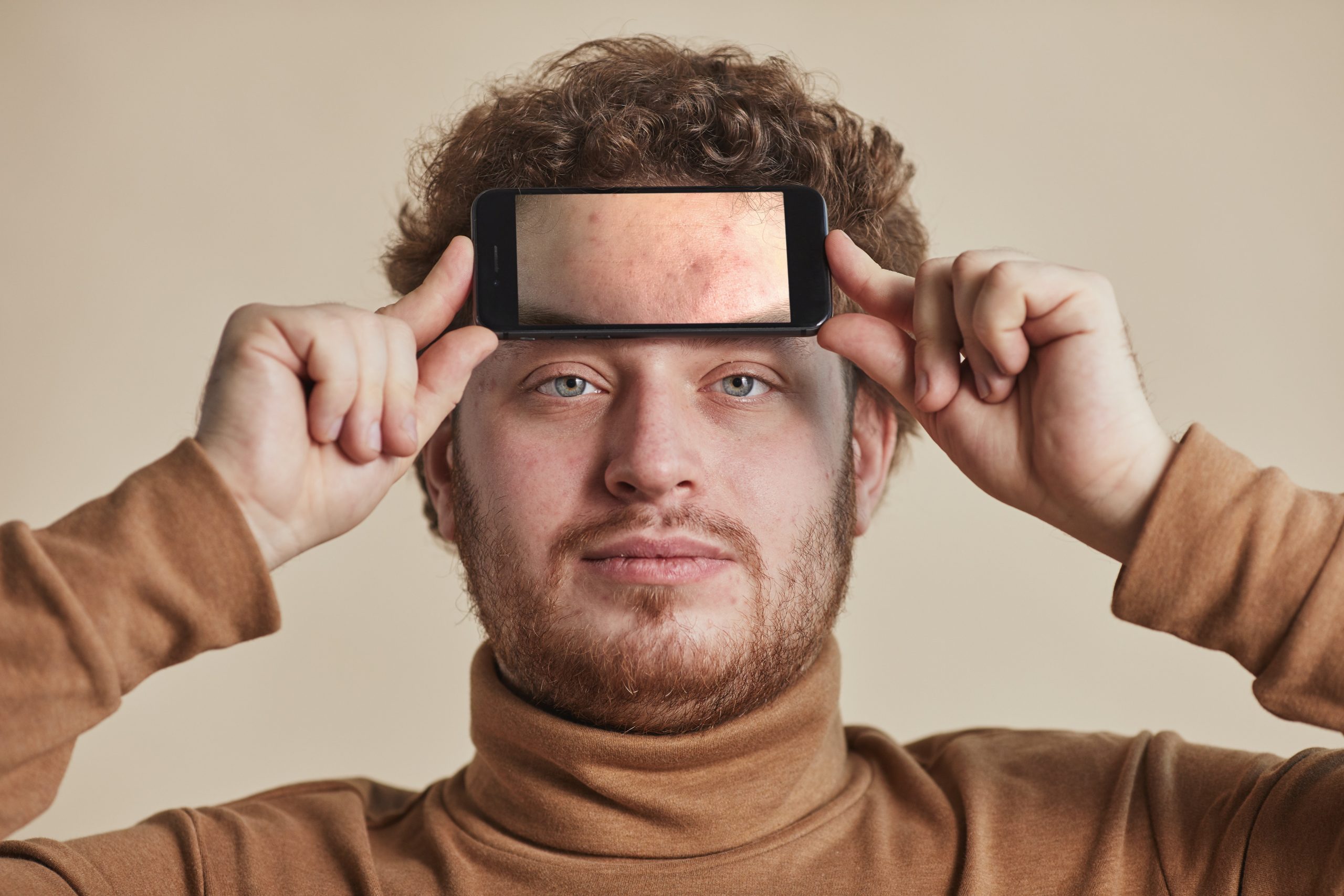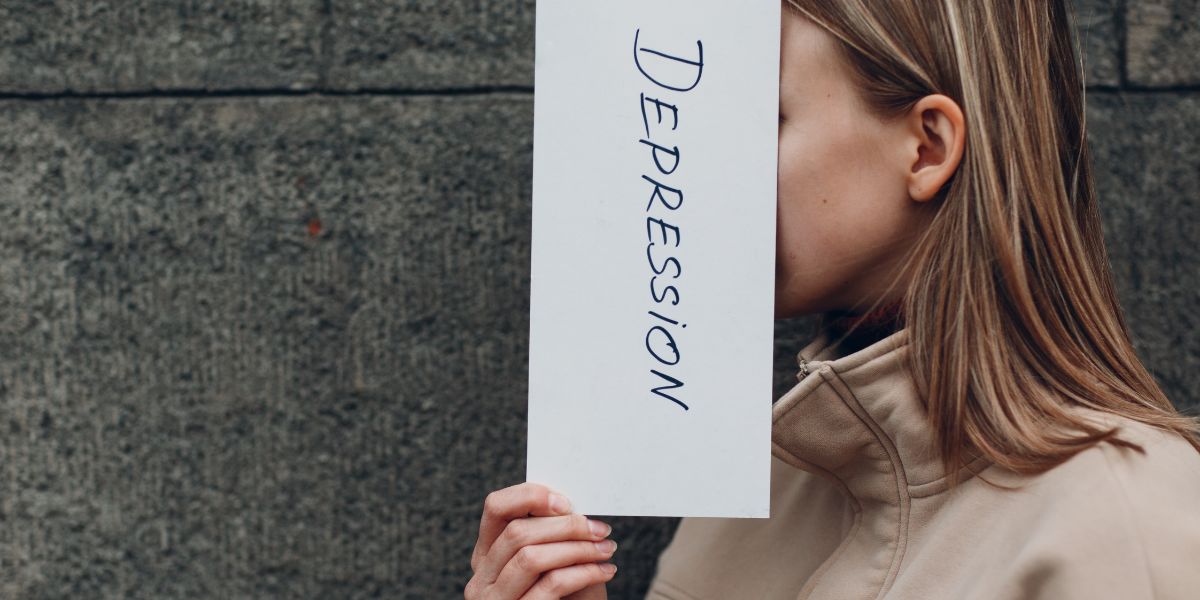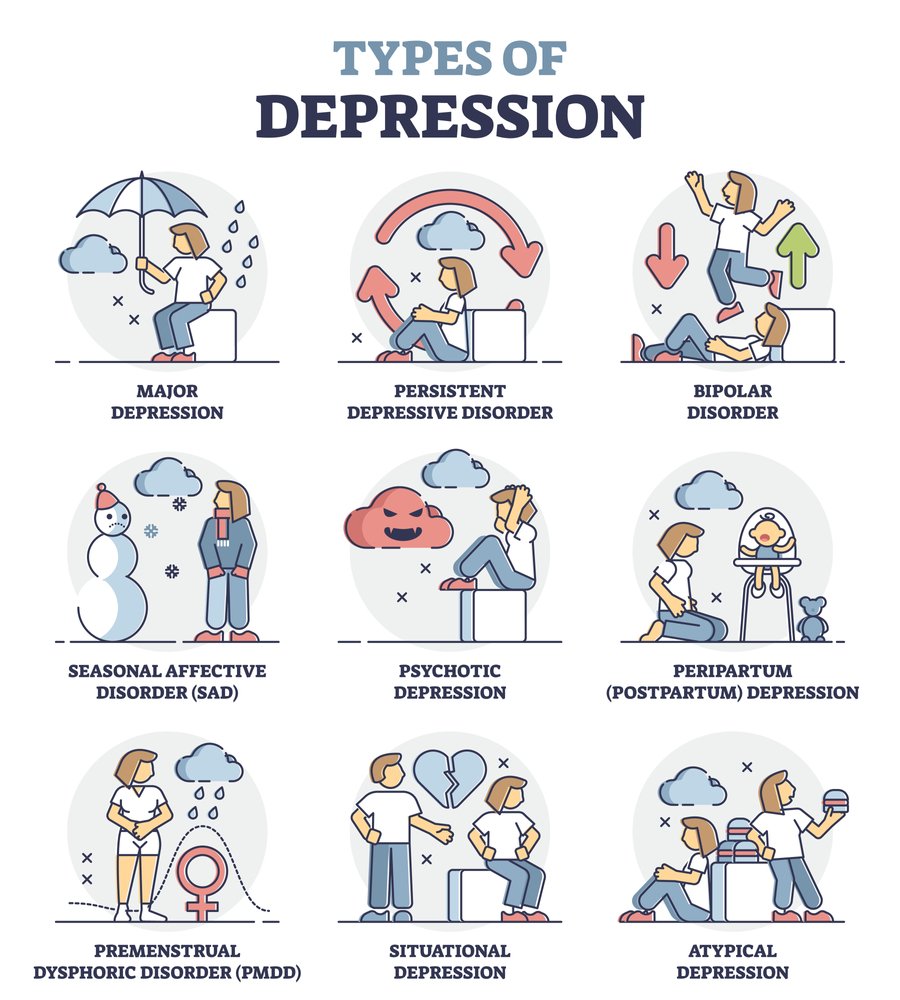As you know, many people across the globe are facing depression issues. The reasons for depression vary from person to person, but you have several ways to get rid of it. In this blog post, we have enlisted the multiple signs of depression and how to eliminate it.
What is Depression?
Depression is a mental health condition that makes you feel sad, worthless, and hopeless. While sadness is common, and everyone goes through the sadness phase either by losing a job or a loved one, failure, sickness, or for any reason when the sadness starts prevailing over your mental health, this is the triggering sign of depression. The majority of individuals are not even aware that they are suffering from depression till the point that it starts affecting their regular life routine and turns into a complex mental disorder.
Depression is not just a feeling, it’s a complete process that completely destroys a person’s happiness, and he starts feeling empty, sad, and useless all the time. In the worst case, depression even triggers suicidal thoughts in the affected person. If not treated right on time, people take longer time to come out of the depression, and also, in some cases, a person is left with a deep emotional pain that is impossible to heal. In the US, more than 10% of individuals suffer from a state of depression for multiple reasons, and out of these, a maximum of the individuals are not provided with the right therapy to fight the cases of depression.
Common Signs and Symptoms of Depression
Depression can impact people of every age group and during any phase of life. This mental disorder interferes with your thinking pattern, eating habits, communication skills, interaction with others, sleeping patterns, productivity, and anything you do in your daily routine. Below we have listed some of the common symptoms of depression, and if you find yourself or your loved one struggling with any of the given signs, you should immediately consult a therapist before depression starts ruining your life.
Some of the commonly occurring signs of depression are:
- Feeling fatigued, timid, and lethargic all the time
- Feelings of restlessness or not being able to feel calm
- Changing sleeping pattern, i.e., not being able to sleep or sleeping too much
- Taking no interest in your work or any of your favorite activity
- Running away from communicating with others and not interacting with your friends and family
- Sudden gaining or losing too much weight
- Drastically changing eating patterns
- Not being able to do anything productive or to put concentration
- Body pain occurs more often for no obvious reason
- Feeling guilty or embarrassed without even doing anything
- Frequent panic attacks
- Triggering suicidal thoughts
The person who suffers from depression has most of these symptoms happening to him, and not just that; the feelings worsen over time. Not necessarily every person with depression has suicidal thoughts; it depends upon the degree of mental health that is damaged by depression. If you witness any of the above feelings mentioned above, it is important to stay positive and try to cope with the situation with an optimistic mindset.
It is also recommended not to start taking anti-depressants without consulting your therapist first. Sometimes, its high intensity becomes fatal. But by making small changes in your lifestyle, you can find healthy coping strategies for depression.
Cause of Depression
Studies have not yet found the obvious contributing factors to depression. However, various aspects might trigger feelings of depression in individuals.
Genes
Probably it’s in the genes. Like any physical disorder, mental disorders can also be inherited genetically. However, genes alone do not play a role in determining a person’s mental state. It might increase your chance of encountering the signs of depression, but without any other contributing factors, the symptoms do not elevate in the individual.
Brain Injury
A common cause of depression is a traumatic brain injury which is reported to contribute to increasing depression even when the injury itself has recovered. Any accidental fall, bump on the head, car accident, or sports injury might damage a specific part of the brain, causing anxiety or depression.
Miserable Circumstances
Almost all have witnessed the circumstances in which the individual goes into a state of depression after encountering unexpected, miserable happenings. It could be in the form of loneliness, loss of job, sickness, trauma, or stress due to any reason that triggers the anxious feelings in the individual, and if not treated on time, it leads to depression. The emotional changes impact the brain cells’ chemical composition, leading to depression severity.
Types of Depression
Not everyone knows that depression appears in more than one form. Although we do not emphasize knowing various types of depression, they still exist and impact individuals in various phases. Whatever form of depression it is, the symptoms are recurring and trigger a sense of helplessness and hopelessness in almost every affected person.
Depression exists in multiple forms:
Persistent Depressive Disorder
This is a chronic form of depression that stays for longer and can be mild, moderate, or severe. The affected person might not feel the symptoms for weeks or even months, but after a certain time period, the symptoms start appearing and are pervasive. Feelings of sadness, littleness, guilt, anger, irritation, fatigue, and sleep loss are common signs of PDD.
Postpartum Depression
Postpartum Depression is a common depression among females during pregnancy or after giving birth. Not being able to sleep, not taking enough self-care, and taking care of a newborn trigger postpartum depression, and you will feel significant mood swings. Hormonal changes are the primary reason behind PPD; it can be long-lasting if not controlled on time. Some of the visible signs of PPD are feeling low all the time, not being able to bond with the baby, panic attacks, hating things you used to like once, and constant thoughts of hurting yourself or the baby.
Seasonal Affective Disorder
When you observe different spells of depression during different seasons or specific patterns, it could probably be Seasonal Affective Disorder. Our body follows a specific pattern, and in case, there is any disturbance to that normal pattern, it disturbs us both physically and mentally, and our brain starts thinking about it to the extent that it causes anxiety that leads to depression. Various symptoms could be involved, such as sudden loss or weight gain during a specific time of the year, encountering any particular disease during a specific season, etc.
Premenstrual Dysphoric Disorder
Premenstrual syndrome is quite common among females of reproductive age and triggers before or during the menstruation cycle. Premenstrual Dysphoric Disorder is more like PMS, focusing more on severe mood changes. Extreme fatigue, irritability, self-blaming, stress, and food cravings are some of the indicators of Premenstrual Dysphoric Disorder.
How to Get Rid of Anxiety and Depression?
Depression is not an untreated disorder, but it requires it to be treated on time so it may not affect your brain cells or damage your health in any way. With the following effective ways, you may eliminate or at least minimize the symptoms of depression. Timely therapy is the key, but if you witness severe signs of depression in yourself or your loved one, it is important to ask a psychiatrist before looking for other ways.
Be Patience and Be Realistic
There’s no magic cure for depression, but you can do several things to reduce your symptoms and improve your mood. If you’re a victim of depression, you need to be realistic.
You should stop overthinking. Sometimes, you consider things in your own way, but they don’t work as you think. You need to correct your perceptions about things and should come out of projected thinking. But all these things require patience. If you go with patience, you can overcome your depression within days.
Take Some Medicines
Prescription medications can help you with depression. There are many antidepressant medications, including selective serotonin reuptake inhibitors, monoamine oxidase inhibitors, and tricyclic antidepressants.
Remember, before getting any medication, you must consult your doctor because medicines for depression can disturb your mental health, so you must be very careful. Besides, when you buy medicine, you must choose a reputed PricePro online pharmacy. This way, you can save money, time, and health.
Socialization
If you’re an introvert, it will be hard for you to come out of depression. You have to become social because meeting new people can change your mind.
Socialization is an important part of mental health. Talking to friends and family, attending social events, or joining a club help to build meaningful relationships and increase your sense of connectedness with others. You find a new meaning in life. This way, you can cope with depression.
Regular Exercises
Regular exercises lessen your loneliness. When you join any fitness club, you get physical fitness and meet new people. You find the people with new emotions who know how to spend life realistically. You learn a lot of things and cope with your situation.
The World Health Organization states that depression impacts more than 300 million people worldwide. But some special exercises can help in reducing depression.
Meditation
As you know, meditation has various health benefits. But if you’re depressed and get help from meditation, you can easily cope with the harsh situation.
Sometimes, you can’t find yourself after many techniques, but if you meditate, you can avoid depression. Studies show that people who join meditation classes are less prone to depression. So, if you’re struggling with your depression, there is no better option than meditation.
Regular Counseling
If you are struggling with depression, you must seek help. Counseling manages effectively. Talking to a counselor helps you understand your thoughts and feelings and develop healthy coping mechanisms.
If you can commit to regular counseling sessions, you will likely see improvements in your mental health.
Traveling
Traveling boosts mental and emotional wellbeing. If you take regular trips, you can reduce the symptoms of depression and anxiety.
Because when you travel, you allow yourself to explore new places, participate in different activities, and meet different people. All of these experiences can help you feel energized and inspired by your surroundings.
The change of scenery also allows us to escape from everyday stresses and worries, which can provide an important break from negative thought patterns. Besides, being away from home reminds you how small your problems can seem in the grand scheme of things.
Be Kind to Yourself
Most importantly, you should start loving yourself right from this moment. If you have never appreciated yourself, you will most likely get hit by some serious level of depression. You don’t have to be cruel to your desires and show yourself the love you deserve. No one in this world can live without empathy, and if you are struggling with depression, you need to practice more empathic behavior, especially with yourself.
While you are fighting depression, this is the most challenging phase for you in which you have to be kind to your soul. Know that this time will pass, and you can only get through this toughest trail sooner with compassion and kindness.
Bottom Line
Starting with any of these effective actions can help combat the multiple symptoms of depression. However, ignoring the recurring symptoms of anxiety and depression affects the brain cells devastatingly and even triggers suicidal thoughts in the affected individual. You cannot reduce the signs of depression all at once but only with smaller steps towards a healthy life. You don’t have to hide your feelings from people close to you. Rather, you should seek help and consult a psychiatrist to control depression.
Frequently Asked Questions (FAQs)
What helps take the depression away?
Brisk walking, exercising, communicating with loved ones, staying away from negative people, believing in your skills, adopting a hobby, and concentrating on good things around you help remove depression without medication. However, in severe cases when nothing works, the individual may be recommended certain anti-depressants to control the symptoms.
Is depression 100% curable?
If the depression signs are treated earlier, it can be cured. However, in certain situations, nothing works except for medication and therapy sessions. Various effective treatments help reduce the risks associated with depression, but in severe cases, the depression leaves behind deep emotional pain in the suffering individual.
Can depression be ended?
Through effective treatments, lifestyle modifications, medication, and counseling sessions, the signs of depression can be mitigated. Depression may come and go, but the symptoms are reduced over time. Sometimes, the treatment is stopped after a certain time, while some people keep going on with their treatment.
What type of depression is permanent?
Dysthymia or also known as Persistent Depressive Disorder is a mild form of depression that stays for longer. This type of depression comes and goes, and people with Dysthymia may suffer from frequent spells of depression.
How long do people stay depressed?
Depression, if it remains untreated, stays for months and even years and appears as regular spells. However, after treating it properly on time, the signs of depression go away within a few weeks.
What are the three main symptoms of depressive disorders?
Trouble interacting with people, loss of appetite, insomnia, frustration, and anxiety are some of the common signs of depressive disorder.
What are the different forms of depression?
Depression may appear in various forms, including Bipolar Disorder, Persistent Depressive Disorder, Major Depressive Disorder, Postpartum Depression, and Atypical Depression.
How does depression affect brain functionality?
According to medical studies, depression affects the gray matter volume that affects the functionality of brain cells. People with severe depression usually have a higher loss in the gray matter volume that shrinks several parts of the brain.
How to get rid of postpartum depression?
With proper counseling, help from the people around, and effective treatments on time, it is possible to eliminate postpartum depression.
What types of talk therapies are effective in combating depression?
Various therapies have proven to produce positive results to minimize depression, including Cognitive Behavioral Therapy, Problem-solving Therapy, Interpersonal Therapy, and Behavioral Activation Therapy.
Which anti-depressants are suggested for individuals with anxiety and depression?
Doctors recommend multiple anti-depressants to patients with depression, but you should not consume any of these without your doctor’s prescription. Zoloft, Prozac, Effexor XR, Venlafaxine, Bupropion, Marplan, and some other medications help in controlling the symptoms of depression.

John Davis is a passionate content writer with a knack for crafting engaging narratives across various subjects. With a keen eye for detail and a love for storytelling, John brings ideas to life through the power of words. His dedication to delivering high-quality and informative content has made him a trusted voice in the digital realm. When he’s not at his desk, you’ll find John exploring new hobbies and seeking inspiration in the world around him.














Loading…